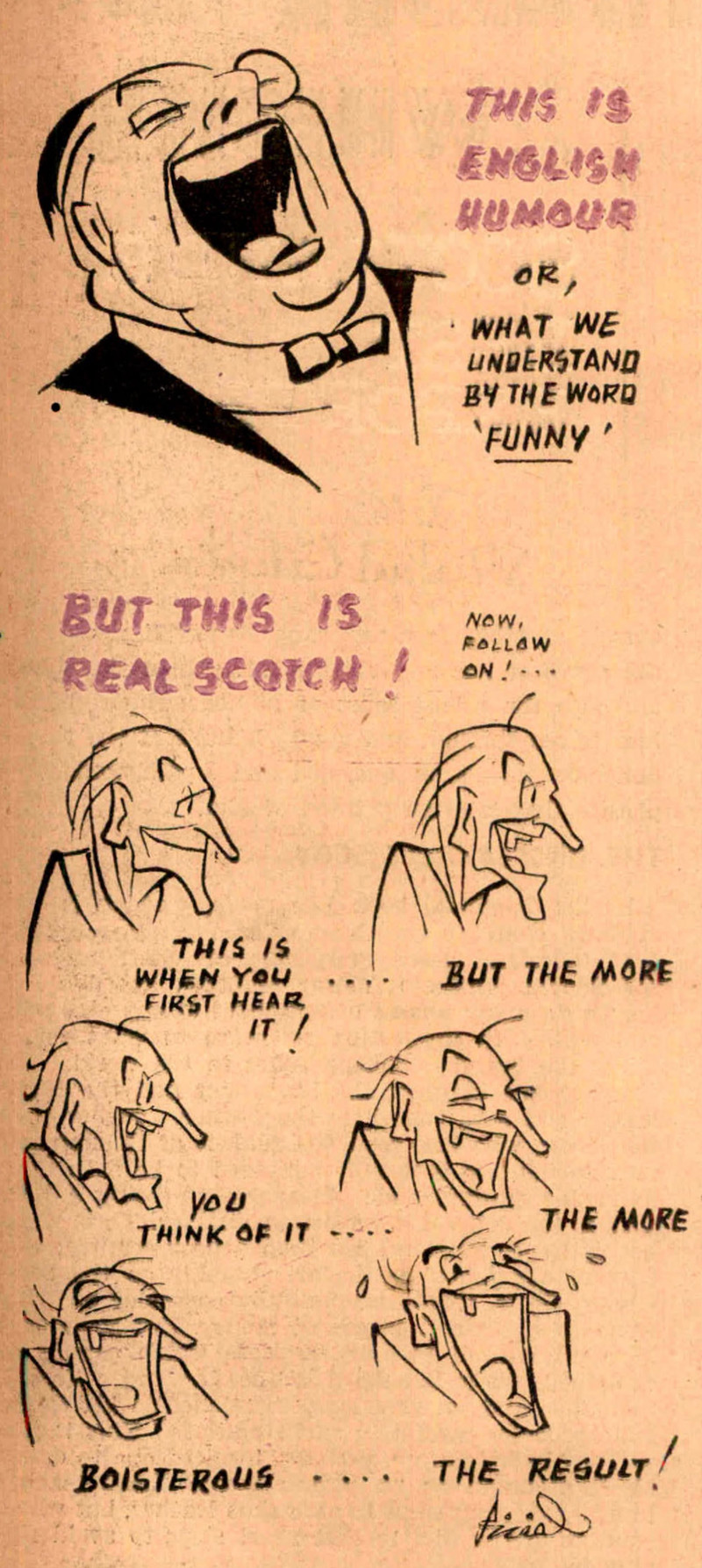
"People think that a sense of humour is to do with being able to recognise at a glance what is funny and what is not. It is nothing of the kind. It is a recognition that everything is funny if you look at it in one way rather than another. And one of the ways of making things seem funny to other people is, for some reason, to do an almost, but not quite, exact imitation of them. And this is a matter of noticing mannerisms, and reproducing them with a slight element of caricature. Verbal mannerisms as well as behavioural ones. People call these clichés, and go on about them as if it were some mark of near-illiteracy to make use of them. So what is life supposed to be — an unremitting process of spontaneous creation? Everybody resorts to clichés: how would would speech, or life itself, be possible? ... [I]t is part of one's sense of proportion to recognise that everything, however seriously it may deserve to be taken in one context, is inherently absurd in another. It is particularly salutary to do so in those moments when the human race is on its high horse about being some superior form of creation — than which no spectacle could well be more laughable to anyone in a laughing mood." —N. F. Simpson's highly recommended Most of What Follows is a Complete Waste of Time: Monologues, Dialogues, Sketches and Other Writings




